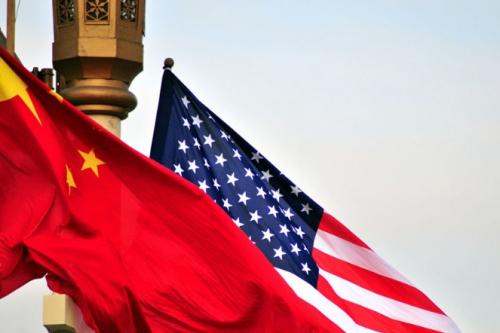


Since it occurred in international waters…
Since it was, in United States Pacific Fleet spokesman Commander Nate Christensen's word, "in accordance with international law"...
Especially since US Defense Secretary Jim Mattis just assured his Chinese counterpart of an unchanged US commitment to "one China"...
The two US military vessels' Monday transit through the Taiwan Straits hardly made a splash. Even though this was the second time the US Navy sent warships through the Taiwan Straits since July. And that has not been the case for some time.
But it certainly means something. And the intention is believed to be two-pronged: showing US military muscles to the mainland and Taiwan, respectively sending a "warning" to the former and a message of "assurance" to the administration on the island.
Like most similar operations the US Navy has conducted, such so-called freedom of navigation operations are like shadowboxing.
Commander Christensen's claim of the transit demonstrating "US commitment to a free and open Indo-Pacific" was far-fetched, if not outlandish. The Indo-Pacific has never been unfree, unopen, with or without US gunboats.
There is no sign China is preventing the US Navy from flying, sailing or operating "anywhere international law allows". But Beijing cannot be clearer about its bottom line: its sovereignty, a core national interest, is not to be compromised, by anyone, by any means.
Not that Beijing does not care about peace. Or it would not have dispatched the biggest number of peacekeepers under the United Nations banner. But its own security interests by and large revolve around territorial integrity and national reunification.
If the Monday voyage was indeed intended as a warning to Beijing, it will not work. The mainland will do whatever it takes to safeguard what it deems to be its core interests. But it may have sent a misleading signal to the independence-leaning authorities in Taipei, making them believe Washington will have them covered no matter what they might do. Should they cross the mainland's red line, however, they will be putting that faith to the test.
Military hawks in Washington have tried hard to scare Beijing and console Taipei. But they should consider the dire consequences of their country being dragged into a costly confrontation that would in the first place be both unnecessary and avoidable.
The odds against such a prospect shorten considerably if they do not know when and where to stop.
If you have any problems with this article, please contact us at app@chinadaily.com.cn and we'll immediately get back to you.